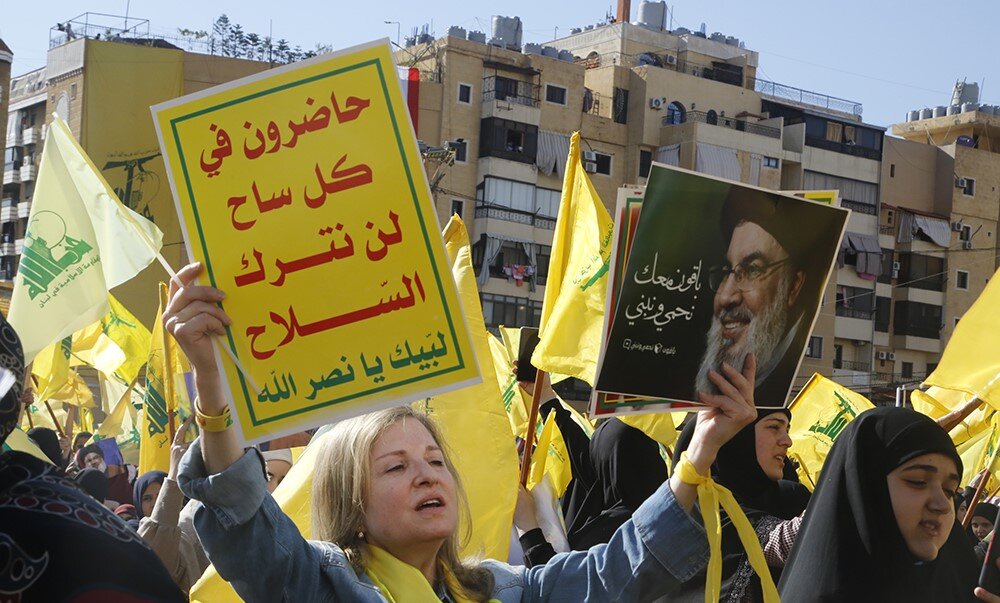Beirut struck: Resistance strategy vindicated

Israel, the principal agent of disorder in the region, this time shed even the pretense of moral restraint and, without the slightest warning, attacked the Lebanese capital on November 23.
The bombardment of the capital and the flagrant, open violation of the ceasefire come precisely while every external actor and even certain domestic Lebanese currents have spent the past year pressuring Hezbollah to disarm, deluded by the belief that submitting to the demands of the Zionist–American axis would bring calm back to Lebanon.
Sunday evening’s targeted assassination strike on Beirut’s southern suburbs now demonstrates, more conclusively than ever before, that the Resistance’s strategic reading of the enemy’s conduct was correct yesterday, remains correct today, and will be correct tomorrow.
Those who peddle the slogan “disarmament first, then peace and tranquility” are scribbling their fantasies on ice beneath a blazing sun.
Hezbollah’s endeavors have never been confined to the military domain alone. The dignified cooperation extended by Lebanon’s formidable Resistance apparatus – which incontestably possesses the power to sever the arm of Zionist aggression – to certain internal political forces constitutes another dimension of the Resistance’s noble efforts: elucidation and clarification.
The vague, undirected, and utterly futile appeals issued by some of Lebanon’s most senior political figures, including the President himself, to the “international community” – the same spectators who for months have watched in silence while the Zionists repeatedly violated ceasefires in Gaza and Lebanon – now serve only to underline the soundness of the Resistance’s analytical framework.
From the very beginning, the Islamic Resistance in Lebanon placed no faith either in the Zionist enemy’s ceasefire or in the American enemy’s negotiators. The former pursues expansionism and the plunder of Lebanon’s rights on the ground; the latter advances the identical objective through the corridors of politics.
Washington’s miscalculation was that Lebanon’s domestic factions would be arrayed against the Resistance. Hezbollah’s steadfast conduct, even while bearing fresh wounds from assassination, rendered that scheme null and void.
Diplomatic comings and goings held no allure for the Resistance, which remained focused on the battlefield, readying itself for the next inevitable round against the Zionist enemy.
Yet for some Lebanese political currents, they appeared seductive and irresistible. All the same, the Resistance accepted every condition laid down by those internal forces – including the army and the government – so as to leave the Zionist enemy no pretext.
Today, it is clearer than the midday sun of high summer: the enemy honors not even agreements to which it was itself a signatory.
The sole language capable of restraining this agent of regional chaos is the language of power – the very principle that the Lebanese Resistance and the entire Axis of Resistance have proclaimed throughout these years and, after 7 October, last year’s war in Lebanon, and the 12-day war against Iran, continue to uphold with undiminished resolve. Only decisive, painful blows can compel the Zionist entity to reconsider its course.
If a new order is to emerge in West Asia, it will not be imposed by American logic centred on the Zionist regime as the primary engine of regional disorder. It will be forged by the iron fist of the Resistance and by the imposition of its will upon the enemy.
This is the unmistakable message delivered by Sunday evening’s assassination strike on southern Beirut.
Source: Sedaye Iran, the online newspaper of the Institute of the Islamic Revolution of Iran — 23 November 2025
